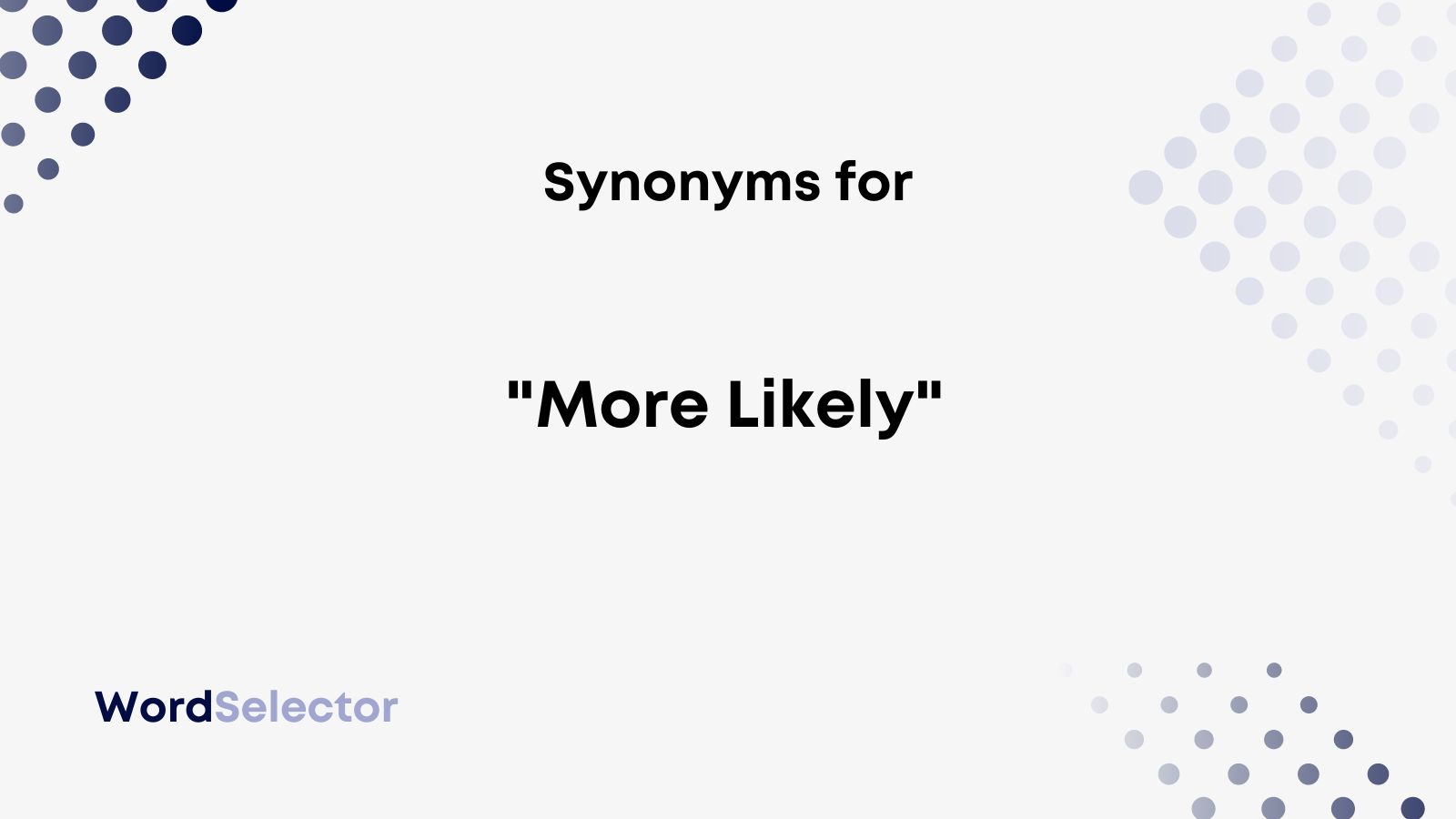Do you want to know how to say something is “more likely” to happen than anything else?
Perhaps you’re worried the phrase itself is a bit informal or insincere.
Well, whatever the case, this article is here to help you!
We’ll explain how to say “more likely” differently to show you other ways to include it in your writing.
Other Ways to Say “More Likely”
- Probable
- Expected
- Apt
- Prone
- Inclined
- Tending
- Predisposed
- More certain
- Likely
- Much more likely
- More of a guarantee
KEY TAKEAWAYS
- “More likely” is correct and allows you to show that something is more certain to happen than something else.
- “Probable” is great as a one-word, formal synonym if that works better for your tone.
- “Expected” is a useful informal alternative to help you mix things up in more casual writing.
So, read on to find a better way to say “more likely.” We’ve explained more regarding the best formal and informal alternatives to help you understand them.
Also, you can read the final section to learn whether it’s correct to say “more likely.” So, it that’s more applicable to you, it might be worth you skipping ahead to find out more.
Probable (Formal)
You can start by using “probable” as another way to say “more likely.”
Generally, this works well when explaining how likely something is to happen. After all, when something is “probable,” it suggests that you expect it as an outcome.
Overall, the term is quite professional. So, it’s a good choice when emailing your team to let them know what you expect from a situation.
You can also review this email sample to learn a bit more about how it works:
Dear All,
The situation is very probable, so we have to prepare for it.
Please let me know what ideas you have to help us move forward.
Best regards,
Danny Bennett
It’s not just useful in emails, though.
You may also use it when writing an essay. That way, you can explain how likely something is to happen based on the evidence or data you’ve already collected.
Feel free to review the following essay sample if you still need help with it:
After looking into the problems, it’s probable that this is the only outcome. So, I have had to put in a contingency plan.
Expected (Informal)
You can be a bit more informal by writing “expected” instead of “more likely.” Overall, this is a great way to be to the point and clear with your readers.
Generally, this gives a slightly more friendly vibe.
So, it’s a good option when emailing a coworker. You can often use something like this when you expect something to be the most likely outcome, but there’s still room for some error.
It’s also smart to review this sample email to learn how to use “expected” in a sentence:
Hi Peter,
This is the expected result, and I’m not sure how to counter it.
I hope you have a few ideas that might allow us to move forward.
All the best,
Zoe Clark
Or perhaps you’d benefit more from using this in academic writing. Sometimes, it’s good to use something simple like this to discuss what you expect to happen when you test something.
And here’s a helpful example to show you a bit more about how to use this synonym:
I have established the expected outcome already, but I’m waiting to see if that’s reasonable.
Is It Correct to Say “More Likely”?
It is correct to say “more likely.”
It’s a formal phrase that works well in most professional emails or settings.
Generally, you can use it to show that one thing is more likely to happen than anything else.
So, you can refer to this formal email sample to learn a bit more about it:
Dear Adrian,
It is more likely that we will make it through this with their help.
So, I suggest you write to them to see if you can get them on board.
Best regards,
Daniel Proctor
However, there are a couple of things you should know before using this phrase.
Firstly, “likely” is two syllables. Therefore, you cannot use “likelier” instead of “more likely.” It’s best to keep “more” in it when using the comparative form.
For instance:
- Correct: Which is more likely?
- Incorrect: Which is likelier?
You can also use the superlative form, which includes “most” before likely. This is a great way to show what’s the most likely thing to happen out of a selection.
For example:
This is the most likely outcome. So, you should focus on this as the way to move forward.
Before you go, make sure you bookmark this page! Then, you can remind yourself of the best synonyms for “more likely.” After all, you never know when they’ll come in handy again.

